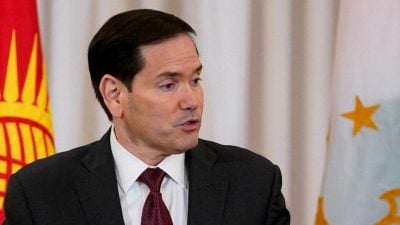
As global tensions spike over a potential Israel-Iran confrontation, the recent G7 summit in Canada should have been an opportunity for unified diplomacy.
Instead, it revealed growing fractures—most notably through US President Donald Trump’s public rebuke of French President Emmanuel Macron.
The summit took an awkward turn when Macron hinted that Trump’s early departure may be linked to behind-the-scenes efforts to mediate a ceasefire between Israel and Iran.
“There is indeed an offer to meet and exchange,” Macron told reporters, adding that the US had “assured they will find a ceasefire, and since they can pressure Israel, things may change.”
Rather than acknowledge the statement or build upon it diplomatically, Trump lashed out, declaring Macron’s remarks “wrong.”
He took to his social media platform, Social Truth, to post a cryptic and ominous message: “Everyone should evacuate from Tehran.”
This message did little to clarify US intentions but did plenty to stoke anxiety—not only among Tehran’s citizens but also among diplomats and analysts worldwide.
For the G7, the real issue was not Trump’s travel plans, but how his increasingly erratic diplomatic style is damaging the very institutions meant to manage global crises.
A pattern of undermining allies
Trump’s treatment of Macron is not an isolated incident. Throughout his political career, Trump has shown a tendency to treat traditional allies as rivals, undermining partnerships that were painstakingly built over decades.
From deriding NATO to withdrawing from climate accords, and from mocking multilateral trade frameworks to now dismissing a European leader’s attempt at diplomacy, Trump’s actions continue to erode confidence in America’s reliability as a global partner.
The G7 is founded on mutual respect and coordinated leadership. For one of its central figures to publicly dismiss another, particularly when diplomacy is urgently needed in the Middle East, is not only reckless—it’s dangerous.
Confusion in a time of escalation
Trump’s comment urging evacuation from Tehran was interpreted by many as a signal of potential US military action or, at the very least, knowledge of an impending Israeli strike.
That the president of the United States would use social media to disseminate such a provocative message, without context or coordination, reflects poorly on US diplomatic process.
More troubling is the vacuum this creates for global governance.
Statements of such magnitude are typically reserved for the State Department or National Security Council—not late-night posts on partisan platforms.
In bypassing formal channels, Trump injects uncertainty into an already volatile geopolitical situation.
This is especially destabilizing in the current Middle East environment.
Israeli military operations against Iranian targets, coupled with Tehran’s retaliatory drone and missile strikes, are rapidly escalating into a broader conflict.
ASEAN nations with vital interests in energy flows and trade stability are watching with growing alarm.
Macron’s remarks: Diplomatic, not disrespectful
Critics might argue that Macron overstepped, but his remarks were measured and optimistic—an attempt to suggest that diplomacy may still be possible.
For Trump to respond with mockery instead of engagement shows not just personal disdain but a strategic miscalculation.
In diplomacy, tone and perception matter. Macron’s intent was to keep the doors of negotiation open. Trump slammed them shut, leaving allies guessing and adversaries calculating.
ASEAN’s view: Stability requires serious statesmanship
From an ASEAN perspective, Trump’s behavior undermines the very credibility of multilateral diplomacy.
The region relies heavily on global forums like the G7 to help stabilize world order.
When those institutions are seen as platforms for personal grievances rather than coordinated action, their relevance wanes.
Moreover, Southeast Asia has long emphasized peaceful conflict resolution, strategic restraint, and balance among great powers.
Trump’s combative posture contradicts these principles, creating unease among ASEAN leaders navigating an increasingly fragmented global order.
The optics matter: when the US president uses the G7 stage to insult a key European ally and sow confusion about military intentions, it sends the wrong message—not only to Iran or Israel but to the entire Global South.
Conclusion: G7 cannot afford to be a stage for grandstanding
The world cannot afford a dysfunctional G7—not now, not when regional conflicts threaten to expand into global crises.
Trump’s derision toward Macron may seem like a personal feud, but it carries significant diplomatic consequences.
At a moment when statesmen should be building bridges to prevent war, Trump chooses to burn them, often in full view of the public.
For the G7 to remain effective, leaders must recommit to dialogue, not derision.
Macron may not be a perfect figure in international diplomacy, but at least he gestured toward peace.
Trump, on the other hand, chose to belittle that gesture—and in doing so, may have weakened one of the last few diplomatic lifelines available to avert another catastrophic war in the Middle East.
(Dr Phar Kim Beng is Professor of ASEAN Studies, International Islamic University Malaysia, and Cambridge Commonwealth Scholar; Professor Ruhanas Harun, Department of Defense and Strategic Studies, National Defense University Malaysia.)
ADVERTISEMENT
ADVERTISEMENT








































